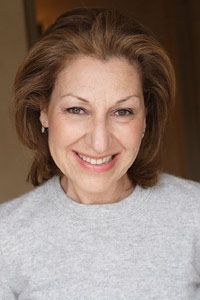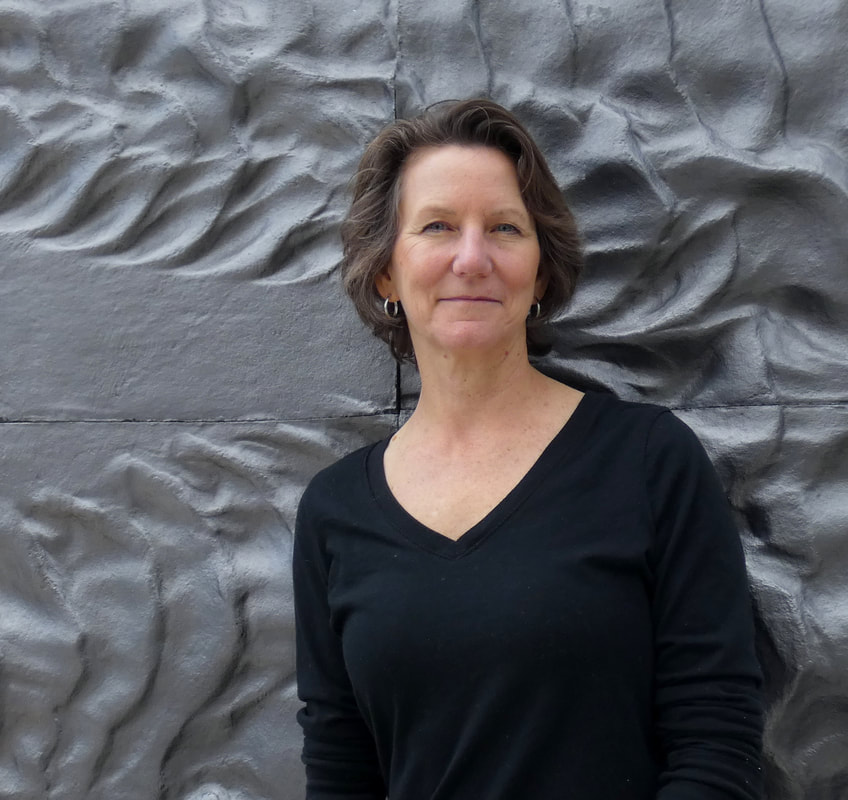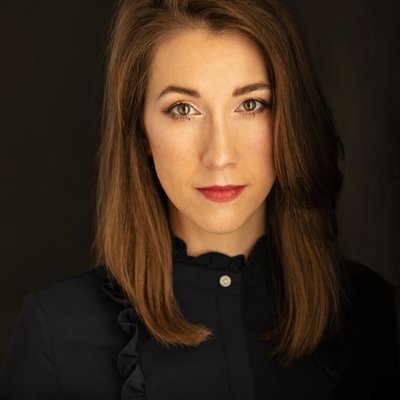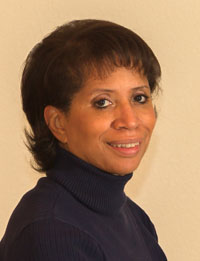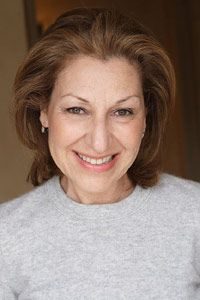 Every author knows that getting a deal with one of the Big Five publishers – Hachette, HarperCollins, Macmillan, Penguin Random House and Simon & Schuster – starts with earning the eye of a reputable literary agent. But with competition more fierce than ever, aspiring writers often struggle to know what quality agents are even looking for. To suss that out a bit, I recently sat down with Angela Rinaldi, founder and president of the Angela Rinaldi Literary Agency in Los Angeles, to talk a bit about what she is looking for and the state of the publishing industry.
Every author knows that getting a deal with one of the Big Five publishers – Hachette, HarperCollins, Macmillan, Penguin Random House and Simon & Schuster – starts with earning the eye of a reputable literary agent. But with competition more fierce than ever, aspiring writers often struggle to know what quality agents are even looking for. To suss that out a bit, I recently sat down with Angela Rinaldi, founder and president of the Angela Rinaldi Literary Agency in Los Angeles, to talk a bit about what she is looking for and the state of the publishing industry.
Open Mic: I think aspiring authors all think they know how busy agents are, but I’m guessing the reality would surprise them. How many emails do you get in an average day or week?
Rinaldi: I don’t measure them on a daily basis, but I would say that I get maybe 100 a week, and maybe several hundred a month.
Open Mic: That is a lot.
Rinaldi: It is, but most can be dealt with very quickly because in many cases people will send me a query for something like science fiction, which I don’t represent. Or a query for horror, and I don’t represent that. Or they’re writing something else that I know immediately is not something I would be interested in or publishable.
Open Mic: What percentage of queries you get will actually become a writer you represent?
Rinaldi: Zero to one. If I take on one project from a query that I receive, that’s a lot.
Open Mic: How many conferences do you attend each year?
Rinaldi: I’d say three to four. I’m definitely not saying yes to as many of them as I used to.
Open Mic: I was going to ask if you get a lot of writers through your conference appearances, but it sounds like maybe you’re not.
Rinaldi: I am being more selective as to the conferences I go to because the material isn’t always there. Conferences are great in terms of getting feedback from an agent, but I’m not sure that outside of the Iowa Writers Conference or the more literary conferences that these very general conferences result in a lot of clients for agents.
 Open Mic: What is the biggest mistake you see aspiring authors make when querying an agent?
Open Mic: What is the biggest mistake you see aspiring authors make when querying an agent?
Rinaldi: I think sometimes they don’t know what genre they are writing in, or they don’t have comparative titles or a platform. They haven’t done their research to help crowded marketing. You would think at this point you wouldn’t keep seeing this, but I still get relationship queries from people who think ‘oh, I’ve been dating a long time and I have something to say,’ but they have no social media skills that they can bring to this platform. No one knows them.
Open Mic: Many agents like to work with journalists because we are trained to be disciplined about deadlines and are used to being edited, etc. Are there any other professions you like to work with?
Rinaldi: I look for the big idea coming from an expert or a creative thinker in his/her field. I don’t really have a preference.
Open Mic: Does it matter to you when a writer says in their pitch that their manuscript has been professionally edited?
Rinaldi: It matters in a couple ways. One, I wonder how much has been edited and rewritten by someone other than the author. If it’s just been copyedited and proofread, fine. Every writer gets input from outside editors. I just always wonder how much of it has been edited and what kind of development it went through? Was the story developed with another person? Those would be my concerns.
Open Mic: Do you have a pet peeve when dealing with newbie writers?
Rinaldi: I don’t know that I would use the word ‘peeve.’ If there were issues, I wouldn’t be working with them. If I saw something in the early stages of looking at their work etc., and I saw something that I felt wouldn’t work between us, I wouldn’t go forward. So normally if I establish a relationship with a writer it’s because I feel there is good rapport and that the writer is professional in terms of being able to go back in and do more work.
Open Mic: Many agents are also writers. Have you ever considered writing a book yourself?
Rinaldi: I write a bit in a workshop, but I don’t know that there will ever be a book that comes of it. They’re fun little essays, usually after I‘ve travelled somewhere or something like that, but no I’m not thinking of a book.
 Open Mic: The prevailing theory for years was that a writer needed to have a New York City agent to really get anywhere with their career. Does it still matter that an agent is in NYC?
Open Mic: The prevailing theory for years was that a writer needed to have a New York City agent to really get anywhere with their career. Does it still matter that an agent is in NYC?
Rinaldi: It really depends on the material. If you have an incredible book, it really doesn’t matter where you are. Most of the agents who are in Los Angeles go back and forth to New York all the time. And the way things work now with submissions, we do so much online. We get book offers online, or really through phone conversations. There is certainly something to being in New York and having lunch with an editor and all that other kind of stuff. That’s an important aspect, however it really comes down to the material. If you have something wonderful, it doesn’t matter where you are or if you are an established agent or if you are a new agent, it all comes down to what you’re submitting.
Open Mic: The business has changed so much over the last few decades. Are things better now for writers or worse?
Rinaldi: I think they’re better in terms of online sites like Wattpad, where they can get out there, post their writing and people read it. Wattpad has the film industry reading it, looking for new writers. Medium is another one. There are ways to post their material that they didn’t have in the past, so it’s good in that respect. Where it’s changing is that editors are just looking for the big book where they can get out 25,000 copies. The advances are smaller, and it’s very hard to find an agent. The smaller houses, which used to be another way to go, are looking for the same material now as the big houses. So yes, it’s more challenging.
Open Mic: My sense is that most writers, and especially newer ones, don’t understand how much they need to immerse themselves in this business – really understanding the markets and how competitive it all is – and may need to faceplant many times before they get it, which certainly I did. Is that the same sense you have that most writers are wholly unprepared for how challenging this industry is right now?
Rinaldi: I think that’s absolutely right. I think they get glimpses of it when they go to these conferences and, if they’re like you, they’re listening to the undercurrents and not all the rah-rah stuff. Conferences are great for firing you up, but ultimately you have to provide the fire and sit down every day and write even if what you are writing is not publishable. That’s the real fire. It’s when you don’t feel good because you’re not writing. Conferences are great but they’re just temporary and they’re evanescent and you come away with some things, but it’s like the people who keep buying all the writing books, but then they don’t write. Or they keep going to conferences and then they don’t write. A couple of years ago I spoke at a program for military vets. They wrote screenplays. I was asked to listen to them pitch their material to see if some of the screenplays they were writing would work as novels. The person who was heading up the group of vets gave a little talk. He said to his colleagues “pen to paper, ass in chair.” I never forgot that because that’s it – it’s pen to paper, ass in chair.
Open Mic: Where do you see the publishing industry being in five years? What is the next major evolution?
Rinaldi: Publishing has been doing what it’s doing for years and years and years, and as long as people are going to put thoughts on paper, there’s going to be a way to get it out there. The printing techniques will change and the marketing will change, but I don’t see the core of the industry changing. It’s always going to be about the book that an editor loves to the point of distraction and can get their publishing committee to say yes to. The heart of the industry is always going to be the absolute love for something that an editor sees as important and maybe changing the world. Those ideals are never going to change and we don’t ever want that to change.
Open Mic: I like to end with a fun question. Let’s say I could put you together for a conversation with just one of the following three people. Which one would you choose, and why? Your options are: the great chef Alice Waters, famous heart surgeon William DeVries (who performed the first heart transplant surgery), or Tesla icon Elon Musk.
Rinaldi: I probably would want a talk with Elon Musk. I would want to talk with Musk because he thinks so large on so many levels. Even now he is letting people go and cutting his business so he can produce that cheaper car. I’m not saying he doesn’t seize opportunities, but I think his mind is interesting. People like him and Steve Jobs and Bill Gates, their brains are just wired differently.

